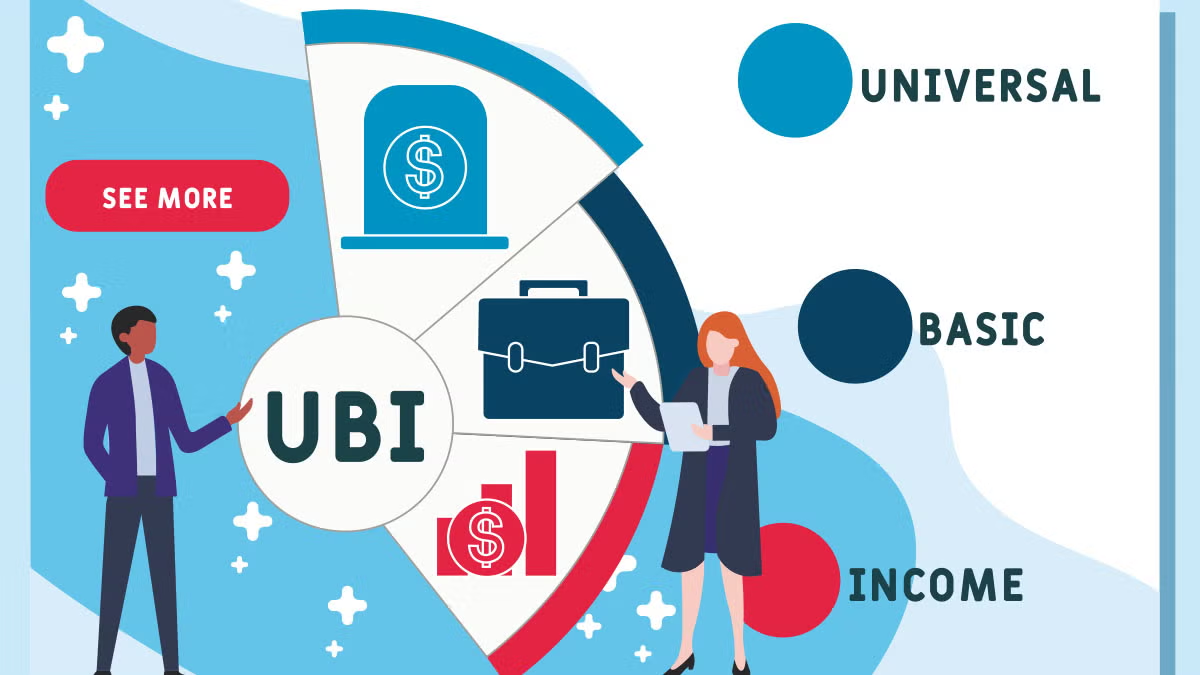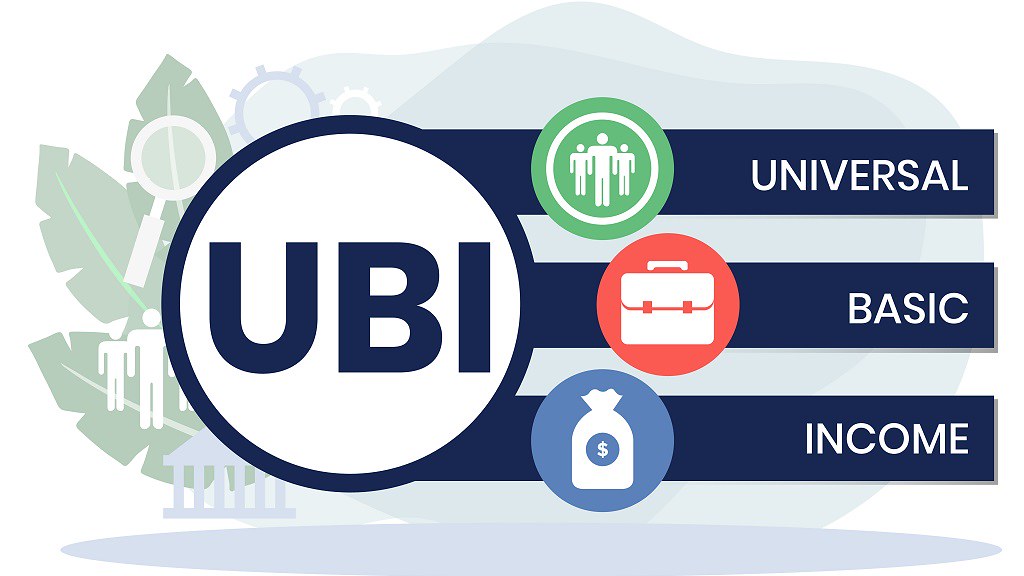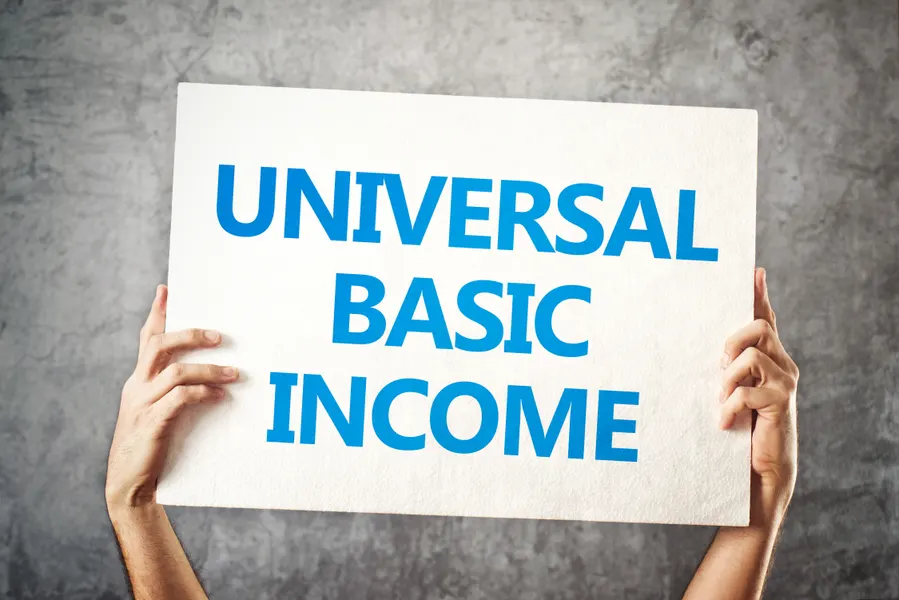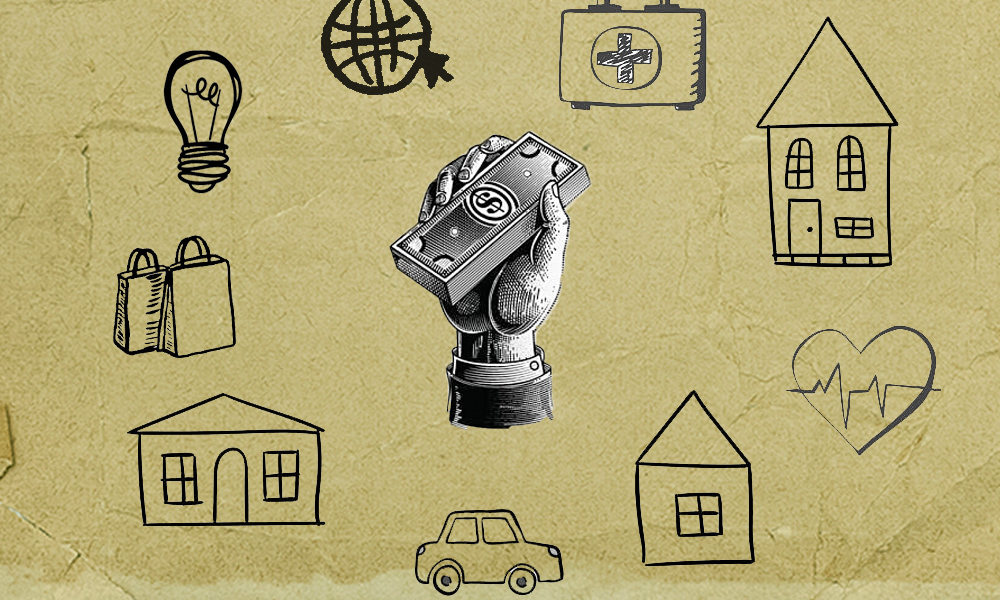What Is Universal Basic Income
Discover what Universal Basic Income (UBI) is, how it works, and why it's becoming a hot topic in modern economics. Learn about real-world examples, benefits, challenges, and what the future holds for guaranteed income programs.
You've probably heard the term "Universal Basic Income" thrown around in political debates, tech conferences, or economic discussions. But what exactly is UBI, and why are some of the world's smartest minds calling it either humanity's salvation or economic suicide?
The concept is surprisingly simple: imagine receiving a regular paycheck from the government, no questions asked, no conditions attached. Whether you're a CEO, unemployed, or a stay-at-home parent, you'd get the same monthly payment. Sounds too good to be true? Well, it's more realistic than you might think, and some places are already testing it.
In this comprehensive guide, I'll break down everything you need to know about Universal Basic Income. We'll explore how it works, who supports it, the real-world results from pilot programs, and whether this revolutionary idea could reshape our entire economic system.
Table of Contents
- What Is Universal Basic Income Exactly?
- The History Behind UBI
- How Universal Basic Income Works
- Real-World UBI Programs and Results
- The Case FOR Universal Basic Income
- The Case AGAINST Universal Basic Income
- Who Supports UBI and Why
- The Economics: Can We Actually Afford It?
- UBI vs Traditional Welfare Systems
- The Future of Work and Automation
- What This Means for Your Financial Future
- Conclusion
What Is Universal Basic Income Exactly?
Universal Basic Income is a social welfare program where every adult citizen receives a regular, unconditional cash payment from the government. Let me emphasize those key words: regular, unconditional, and cash.
Unlike traditional welfare programs that come with strings attached, UBI has five defining characteristics:
Periodic: You receive payments regularly (usually monthly), not just once.
Cash payment: Real money you can spend however you want, not vouchers or credits.
Universal: Everyone gets it, regardless of their current situation.
Individual: Payments go to individuals, not households.
Unconditional: No work requirements, no means testing, no bureaucratic hoops to jump through.
Think of it as a financial foundation that everyone can count on, similar to how we view public education or emergency services. The amount varies by proposal, but Andrew Yang's famous "Freedom Dividend" suggested $1,000 per month for every American adult.

The History Behind UBI
Before you dismiss UBI as some modern Silicon Valley fantasy, consider this: the idea has been around for centuries. Even Julius Caesar gave money to Roman citizens when he died in 44 BCE. Talk about an early adopter!
Thomas More discussed it in his 1516 book "Utopia," and Thomas Paine proposed a version in the 1790s. But the modern conversation really heated up in the 20th century with some surprising supporters.
Martin Luther King Jr. advocated for guaranteed income in his 1967 book "Where Do We Go from Here: Chaos or Community?" He saw it as a tool for economic justice and racial equality.
Milton Friedman, the conservative economist and Nobel Prize winner, supported a "Negative Income Tax" – essentially UBI – because he believed it was more efficient than traditional welfare bureaucracy.
Even Presidents Lyndon Johnson and Richard Nixon considered basic income proposals during the War on Poverty. Nixon's plan actually passed the House twice but died in the Senate.
The conversation cooled down for decades until technology entrepreneurs started worrying about automation displacing workers. That's when Andrew Yang brought UBI back to mainstream politics during his 2020 presidential campaign.
As noted in Thinking, Fast and Slow, our economic systems often operate on outdated assumptions about human behavior and work. UBI challenges many of these fundamental assumptions.
How Universal Basic Income Works
The mechanics of UBI are refreshingly straightforward compared to our current welfare maze. Here's how it would typically function:
Step 1: Eligibility Every adult citizen (usually 18+) automatically qualifies. No applications, no interviews, no proving you're "deserving enough."
Step 2: Payment The government deposits money directly into your bank account monthly. The amount is fixed – everyone gets the same regardless of their other income.
Step 3: No Strings Attached You can spend it on rent, food, education, starting a business, or even frivolous purchases. The government doesn't track or judge your spending choices.
Step 4: Relationship to Other Programs This varies by proposal. Some UBI plans would replace existing welfare programs entirely, while others would supplement them. Yang's Freedom Dividend, for example, let people choose between UBI and their current benefits.
The beauty lies in its simplicity. Instead of maintaining separate bureaucracies for food stamps, unemployment insurance, housing assistance, and dozens of other programs, you have one system making one type of payment.
For those interested in understanding how money and economic systems evolve, The Bitcoin Standard: The Decentralized Alternative to Central Banking offers fascinating insights into alternative monetary thinking.
Real-World UBI Programs and Results
UBI isn't just theoretical anymore. Dozens of pilot programs worldwide are providing real data about what happens when you give people unconditional cash. Let me share some fascinating results:
Alaska's Permanent Fund Dividend Since 1976, Alaska has paid every resident (including children) an annual dividend from oil revenues. The amount varies yearly, ranging from $878 to $2,072 per person.
Results? Childhood poverty decreased, and there was no significant reduction in work motivation. Interestingly, it actually increased part-time work and encouraged families to have more children.
Kenya's Long-term UBI Experiment GiveDirectly is running a 12-year program giving entire villages in Kenya monthly payments. Early results show "substantial economic expansion" in recipient communities.
Rather than reducing work, many people used the money to switch from low-wage jobs to higher-income self-employment. The local economy grew as people had more money to spend at local businesses.
Stockton, California's SEED Program From 2019-2020, Stockton gave 125 residents $500 monthly with no strings attached. Recipients spent 98% of the money on basic necessities like food, housing, and transportation. Only 1% went to potentially harmful purchases like alcohol or tobacco.
Finland's Unemployment Experiment Finland gave 2,000 unemployed people €560 monthly instead of traditional unemployment benefits. Recipients reported lower stress levels, better mental health, and slightly higher employment rates compared to the control group.

The pattern across most programs? People use the money responsibly, stress decreases, health improves, and work motivation remains largely intact.
The Case FOR Universal Basic Income
UBI supporters make compelling arguments that go far beyond just giving people money. Here are the strongest cases for implementation:
Poverty Elimination UBI provides a guaranteed income floor. If set high enough, it could virtually eliminate absolute poverty overnight. No more families choosing between rent and groceries.
Economic Stimulus Poor and middle-class people spend nearly every dollar they receive, creating immediate economic activity. This is exactly what happened during COVID-19 stimulus payments – consumer spending surged.
Administrative Efficiency Our current welfare system is a bureaucratic nightmare. The U.S. has over 80 means-tested federal programs, each with its own rules, applications, and oversight. UBI could replace this complexity with elegant simplicity.
Worker Empowerment With basic needs covered, workers gain negotiating power. They can refuse exploitative jobs, demand better working conditions, or take time for education and training. As discussed in Your Money or Your Life: 9 Steps to Transforming Your Relationship with Money and Achieving Financial Independence, financial security fundamentally changes your relationship with work.
Innovation and Entrepreneurship UBI provides the safety net needed for risk-taking. Want to start a business but can't afford to quit your day job? UBI could be the bridge that enables more innovation and entrepreneurship.
Support for Unpaid Work Currently, we don't compensate caregivers, volunteers, artists, or community organizers. UBI recognizes that valuable work extends beyond traditional employment.
Future-Proofing Against Automation As AI and robotics advance, UBI provides a buffer against technological unemployment. Rather than fighting automation, we can embrace it while ensuring everyone benefits.
The Case AGAINST Universal Basic Income
UBI critics raise serious concerns that deserve honest consideration:
The Cost Problem Yang's $1,000/month proposal would cost roughly $2.8 trillion annually – nearly the entire federal budget. Even with savings from eliminated programs, the numbers are staggering.
Inflation Risk Putting more money in everyone's pockets could drive up prices, potentially erasing UBI's benefits. If everyone has an extra $1,000, won't landlords just raise rents by $1,000?
Work Disincentives Critics worry that guaranteed income reduces motivation to work. Why take a stressful job if you can survive without it? This could shrink the tax base needed to fund UBI itself.
Political Impossibility UBI requires massive political consensus and sustained commitment across multiple election cycles. Given our polarized politics, implementation seems unlikely.
Targeting vs. Universality Giving money to everyone, including the wealthy, seems wasteful when targeted programs could help the needy more efficiently. Why give Jeff Bezos $1,000/month?
Crowding Out Other Programs UBI might justify cutting other social programs. But what if UBI proves insufficient? People could end up worse off than under the current system.
The psychology behind financial decision-making, explored thoroughly in Morgan Housel's "The Psychology of Money" Book, suggests that people's relationship with money is more complex than UBI supporters often assume.
Who Supports UBI and Why
UBI creates the strangest political bedfellows. Here's who's backing it and their motivations:
Tech Entrepreneurs Mark Zuckerberg, Elon Musk, and other Silicon Valley leaders support UBI because they see automation coming. They'd rather implement UBI proactively than deal with social unrest when robots replace human workers.
Progressive Politicians Figures like Alexandria Ocasio-Cortez view UBI as economic justice – a way to reduce inequality and provide basic dignity to all citizens.
Conservative Economists Milton Friedman and Charles Murray support UBI because it could eliminate welfare bureaucracy while preserving market mechanisms. They see it as more efficient than current programs.
Labor Leaders Some union leaders back UBI as worker protection against corporate exploitation and technological change.
Religious Leaders Pope Francis and many religious figures frame UBI in moral terms – ensuring no worker exists without basic rights and dignity.

Libertarians Some libertarians prefer UBI's simplicity to complex welfare bureaucracies, seeing it as less government interference in people's lives.
This diverse coalition suggests UBI transcends traditional political categories. When both Bernie Sanders supporters and free-market economists agree on something, it's worth serious consideration.
The Economics: Can We Actually Afford It?
Let's talk numbers honestly. Yang's Freedom Dividend would cost about $2.8 trillion annually. For context, total federal spending in 2023 was about $6.2 trillion. So we're talking about a massive expense.
But UBI supporters argue the net cost would be much lower:
Savings from Eliminated Programs Food stamps, unemployment insurance, housing assistance, and other programs cost hundreds of billions annually. UBI could replace many of these.
Economic Growth Money in people's pockets stimulates economic activity, generating tax revenue. Every dollar of UBI could generate more than a dollar in economic activity.
Reduced Crime and Healthcare Costs Poverty reduction typically leads to lower crime rates and better health outcomes, saving money on prisons and healthcare.
New Revenue Sources Yang proposed a 10% Value Added Tax (VAT) on business transactions. Other proposals include carbon taxes, wealth taxes, or financial transaction taxes.
Administrative Savings Eliminating welfare bureaucracy could save billions in administrative costs.
However, even UBI supporters acknowledge the math is challenging. The Tax Foundation estimated Yang's revenue proposals would only cover about half the program's cost.
For those wanting to understand wealth building in our current system, Rich Dad Poor Dad provides foundational insights into financial thinking that complements discussions about economic policy.
UBI vs Traditional Welfare Systems
Our current welfare system is like a Rube Goldberg machine – unnecessarily complex and often ineffective. Let me break down the key differences:
Current System Complexity The U.S. has over 80 means-tested federal programs. Recipients must navigate different agencies, fill out multiple applications, and prove their worthiness repeatedly. The system creates "welfare cliffs" where earning slightly more income can result in losing benefits worth more than the income gain.
UBI's Simplicity One program, one payment, no conditions. You can't lose UBI by getting a job or increasing your income. This eliminates perverse incentives and bureaucratic waste.
Dignity and Autonomy Current welfare programs are often paternalistic – food stamps can't buy hot food, housing vouchers limit where you can live. UBI treats recipients as capable adults who can make their own decisions.
Coverage Gaps Traditional welfare misses many needy people who don't fit specific categories. The "working poor" often earn too much for assistance but too little for stability. UBI covers everyone.
Political Sustainability Means-tested programs create "us vs. them" dynamics. Universal programs like Social Security enjoy broader political support because everyone benefits.
However, targeted programs can be more cost-effective per person helped. The question is whether universality's political and administrative advantages outweigh targeted programs' efficiency.
The Future of Work and Automation
This is where UBI discussions get really interesting. We're not just talking about helping the poor – we're potentially preparing for economic transformation.
The Automation Reality A 2023 study by OpenAI and the University of Pennsylvania found that 80% of U.S. workers could see at least 10% of their tasks affected by AI language models. That's not just blue-collar jobs – white-collar work is increasingly automatable too.
Historical Precedent Previous technological revolutions eventually created new jobs, but the transition periods caused significant social disruption. UBI could smooth these transitions.
The Care Economy As machines handle routine tasks, human work might shift toward care, creativity, and relationship-building – areas where humans excel. UBI could support these valuable but often unpaid activities.
Entrepreneurship and Innovation With basic needs guaranteed, more people might take entrepreneurial risks. The next great innovation might come from someone who couldn't afford to quit their day job without UBI.
Redefining Value UBI forces us to question whether human worth should depend on employment. Maybe we should value community building, environmental stewardship, and artistic expression even if they don't generate traditional "productivity."
For insights into adapting to rapid change and focusing on what matters most, The ONE Thing: The Surprisingly Simple Truth About Extraordinary Results offers valuable perspective on navigating uncertainty.

What This Means for Your Financial Future
Whether or not UBI becomes reality, thinking about it can transform your financial planning. Here's how:
Income Diversification UBI proponents essentially argue for guaranteed income streams. You can create your own version through emergency fund planning, passive income strategies, and building multiple revenue sources.
Skills Development If automation is coming, focus on uniquely human skills: creativity, emotional intelligence, complex problem-solving, and relationship building. These are harder to automate and more valuable in a UBI world.
Financial Independence UBI discussions highlight the power of covering basic needs. Work toward your own financial independence so you're not dependent on employment for survival.
Investment Perspective Companies benefiting from automation might be good investment targets. Similarly, businesses serving human needs that can't be automated could thrive in a UBI economy.
Career Flexibility Start thinking about work differently. What would you do if basic needs were guaranteed? That might be your most authentic and ultimately most successful career path.
Economic Awareness Stay informed about economic trends and inflation protection strategies. Whether UBI happens or not, understanding money and economics serves you well.
Consider reading The Intelligent Investor - Benjamin Graham to understand timeless investment principles that remain valuable regardless of economic policy changes.
Conclusion
Universal Basic Income represents one of the most fascinating economic policy debates of our time. It's simultaneously radical and conservative, utopian and pragmatic, simple and complex.
The evidence from pilot programs is largely encouraging – people use money responsibly, stress decreases, and work motivation remains generally intact. But scaling from small pilots to national programs involves enormous challenges, especially regarding cost and political feasibility.
Whether UBI succeeds or not, it's forcing crucial conversations about work, value, and human dignity in an age of technological change. It's making us question fundamental assumptions about our economic system.
My advice? Don't wait for UBI to save you. Build your own financial foundation through smart money management, debt elimination, and income diversification. Create your personal "basic income" through emergency funds and passive income streams.
But also stay engaged in the debate. UBI could reshape our economic future, and that future is too important to leave to politicians and economists alone.
What do you think? Is UBI humanity's next great social innovation, or an expensive mistake waiting to happen? The answer might determine the kind of society we build for the next generation.
Want to dive deeper into financial independence and building wealth in any economic system? Check out our comprehensive guide on achieving financial independence and learn how to create your own economic security.

